Mother permitted to give birth to her dead daughter’s child
 Following a Court of Appeal battle a 60-year-old woman has been granted permission to take her dead daughter’s frozen eggs to a US fertility treatment clinic, to fertilise them with donor sperm and then (assuming success) to carry the embryos and (she hopes) give birth to her own grandchild.
Following a Court of Appeal battle a 60-year-old woman has been granted permission to take her dead daughter’s frozen eggs to a US fertility treatment clinic, to fertilise them with donor sperm and then (assuming success) to carry the embryos and (she hopes) give birth to her own grandchild.
Or should I say her own child?
Because on one hand this child would be the woman’s son/daughter but on the other, the child would also be her grandson/granddaughter.
More of that shortly but first some brief background.
A 28-year-old woman, dying of cancer, had her eggs frozen during her treatment. News reports on the case state that the young woman told her mother that she wanted her to have her child instead. However this was not clearly written in writing, hence the legal battle.
The fertility watchdog (HFEA) refused to release the eggs to the mother on the grounds that the daughter had not provided full written consent. It seems that although the daughter had filled out a form agreeing to the eggs’ storage and use, she had not specified how her eggs would be used after her death, including whether they should be taken abroad or fertilised with a sperm donor.
On the basis of the conversations the mother said she had with her daughter, the High Court has now ruled that the refusal by the HFEA to allow treatment was ‘flawed’. A New York clinic has apparently agreed to carry out the fertility treatment.
The arguments for this case to succeed are well articulated in this article headlined: ‘There’s nothing wrong with a mother giving birth to her own grandchild.’
The author considers three issues: is this playing God and just unnatural? Was consent really given? Will it adversely affect the welfare of the child? Taking each in turn:
- While not using the term ‘playing God’ we can still be concerned about the breaking of some clear natural boundaries ie parentage by a dead person, a grandmother and anonymous sperm donor, by post-menopausal motherhood and by surrogacy. As this blog shows, we all have a kind of internal moral alarm signal, often dulled, but still there, that we should heed.
- Consent is this case was not clearly given. If it were, there would be no court case! I have no details about how the conversation between mother and daughter was proven however the judgement means that the requirement of the law for written consent is not so clear cut after all. Which will inevitably open the door to future court cases and contested consent.
- In my view, the most important issue, and our primary duty, is to the welfare of the child. But according to the law and HFEA, it seems that consideration of the child is the least of all concerns. The HFEA never refused initial permission on welfare grounds for the child but purely on consent of the (now-dead) mother.
It would seem that as long as parental consent is given, pretty well anything goes with reproduction! The focus is all on the ‘parents’, not on the child.
So let’s consider the ‘parents’ here for a moment.
In the UK, a woman who gives birth to a child is the legal mother and her husband the legal father. So if the woman in this case does successfully give birth, the child would legally be her child, and that of her husband (except we know she is doing this to have ‘her’ grandchild, so will she actually regard herself as a grandmother?).
Yet we also know that the child is her genetic granddaughter (or is it genetic daughter?) because her daughter’s egg would provide half the child’s chromosomes. Except if ‘ownership’ is determined by genetic contribution, the other half will actually come from an anonymous American sperm donor!
The point I’m really wanting to make here is that it’s not just about the adults, children have interests and feelings too.
What would it be like to grow up knowing that your legal mother, who gave birth to you, is also your grandmother, you have no idea who your father is (and never will) and your ‘real’ genetic mother had been dead for years before you were even an embryo?
How is it possible for the child to be ignored in both the case and coverage? There is a condition called ‘genealogical bewilderment’ (see here too) which refers to identity conflicts and problems for such children born into confusing parentage like this.
Donor conceived adults are increasingly speaking out about the profound effect that the loss of their biological heritage has on them. Their voices deserve to be heard, not just the voices of wannabe parents, or donors, or the various warring parties who are deciding on their futures (like the HFEA and judges).
We do not know what the legacy of this would be for any child(ren) born in this particular case but it doesn’t take much common sense to suspect that he/she has a pretty confusing road ahead.
Too often, adult choices take no regard of the basic presumption that a child’s best interest is to be born into a natural family structure in which family relationships have not been intentionally confused. In a world that allows (encourages) individuals almost complete freedom to pursue any number of different reproductive options, with little consideration of its effects on others, it will probably seem radical to suggest saying ‘no’ to some exercises of human freedom, and to turn away from reproductive technology that is possible but harmful. But surely we have to?
In Christian thought children are gifts, given to us to love and care for. They are not commodities that we choose or own. This is not a popular concept in a culture that values self-fulfillment so highly.
It is possible to have genuine sympathy for the family’s tragedy in facing the death of their only child but, rather than solely grieving the loss of her daughter, the mother seems to be trying to ‘replace’ her loss by carrying her dead daughter’s baby, aided and abetted by others.
This is yet another sad example of society’s desperate attempts to find new ways to cheat death which is driving us to ignore or stifle a deep-seated sense of repugnance, and to permit practices that erode human dignity and undermine societal goods.


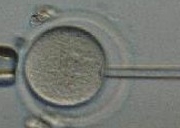
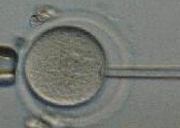
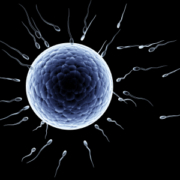
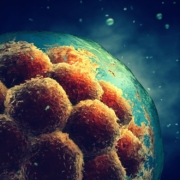
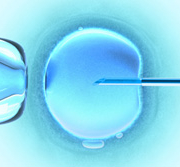



Leave a Reply
Want to join the discussion?Feel free to contribute!